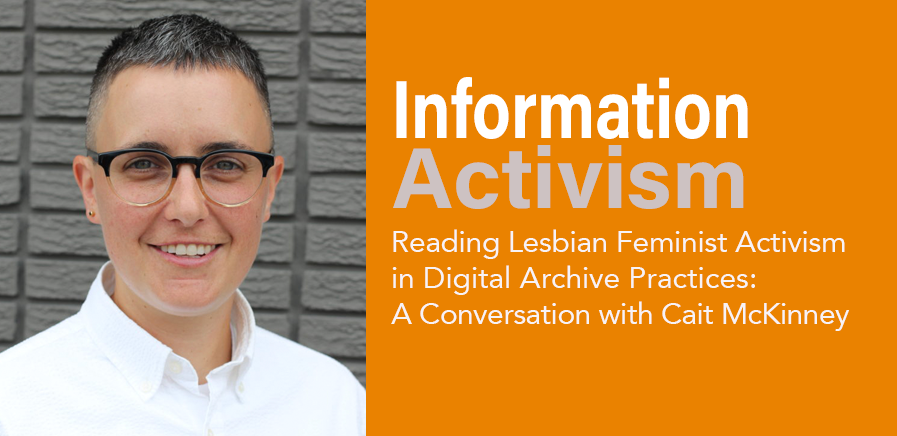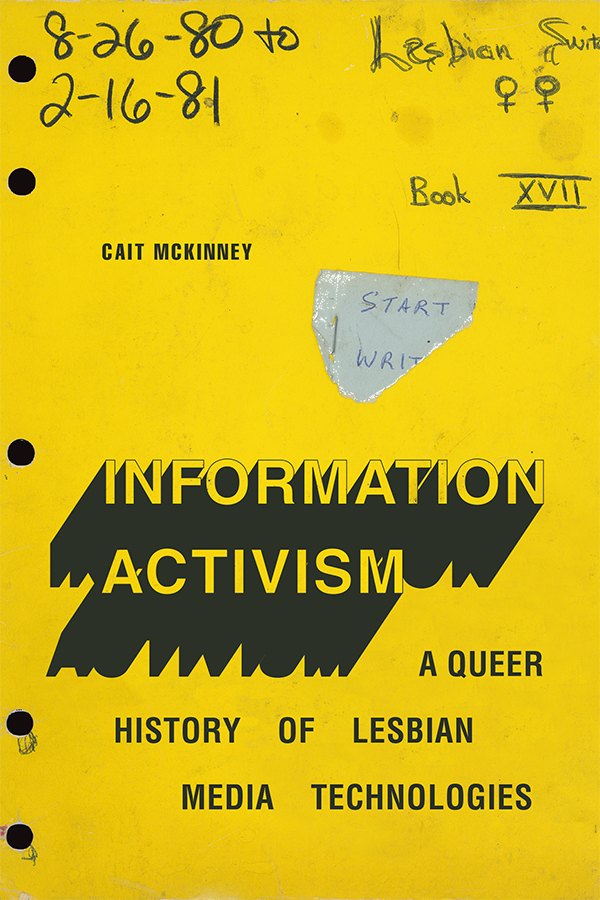Reading Lesbian Feminist Activism in Digital Archive Practices: A conversation with Cait McKinney
Published by Alison Moore


This blog post was contributed by Sophia Han, a former Digital Fellow in the Digital Humanities Innovation Lab.
What are some of the connections you explore between information activism and digital archives?
One of the things I want people to take away from the book is to think about the digital collections that they’re using, to think about the everyday choices and practices that go into assembling them, and to think of them as media technologies that in themselves, take shape in ways that reflect the values, beliefs, and priorities of the groups that make them.
In my work I'm often looking at LGBT community archives. The collections that you find in those spaces reflect things that have been important to those communities. So for trans archives, there's an emphasis on access to health care. For lesbian archives, there's an emphasis on different kinds of feminist issues.
The same is true as these archives become digitized. People make choices about what to prioritize. They make choices about how to describe objects in digital collections when they assign metadata. All of this shapes how we encounter these collections, especially now in the time of COVID, when we’re doing a lot of our primary source research through digital collections. It’s important to be thinking about what we have access to, how the collections are assembled, and to be critical of those practices of assembly and curation.
You describe the importance of interviews conducted with information activists. What is the role of activists in creating and maintaining these archives?
When I use the term “information activism,” I'm talking about three things. First, I'm talking about people: their histories and experiences of the world that they bring to the organization and the work that they choose to do. Second, I’m talking about the visions of justice that those people have, and what they bring to their work with information technologies or archives. The third thing has to do with the media technologies that activists choose to work with, including why they might choose one technology over another, how they roll them out, and how they adapt them to their needs and values.
The concept of information activism tries to bring together people as they're entangled with politics and technologies. It considers how everyday practices like choosing a scanner or choosing a software, can really matter in profound ways.
How did your research evolve as you developed a sense of their archive practices?
When I'm doing archival research, the things that have been fruitful for me are insights learned from the experience of doing research. First, connect with the archivist So much of my book project came from those generous moments of reciprocity when an archivist listened to what I was curious about and helped me to find things I would never have otherwise found.
Another part of it came from following connections between collections. Especially with activist archives, we're often talking about small groups of people who are involved in multiple organizations and who know each other. You can follow the names of different groups and different folks across collections to see how these bigger webs of support and networks of political organizing are formed.
In the digital humanities, digitization is often framed as a solution to the problem of preservation. In what ways does a feminist critique challenge the understanding of digitization as a practice of preservation?
There’s a common perception that if you want to keep something forever, you digitize it. But any digital archivist will caution you about that because digital records require the same kind of care and maintenance over time that paper records do. You have to migrate formats. People’s access to files will change. You have to make sure that the integrity of data is preserved over time. It requires ongoing work and maintenance by humans to keep records preserved. Preservation is an active and ongoing process, whether you're talking about paper or digital objects. I think feminist methods can help to surface these processes, because they emphasize maintenance and care and behind-the-scenes labor that go into making archives.
Digitization also raises all kinds of new issues that we have to think about, like questions of ethics and privacy, and whether or not sexual minorities want all of their materials on the Internet for researchers to access and find. A feminist technology studies perspective helps us to always keep these questions at the forefront and to be more modest about the ways that we think about and celebrate the digital.


